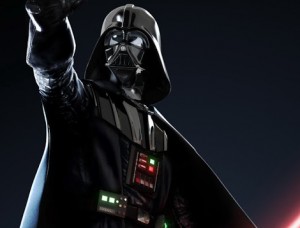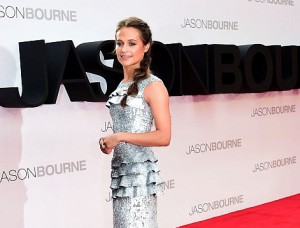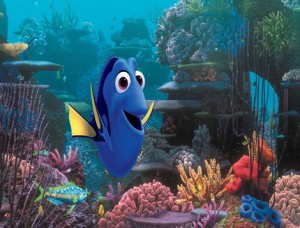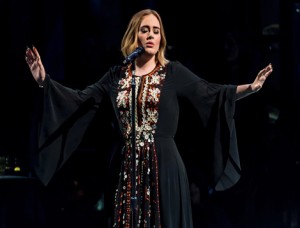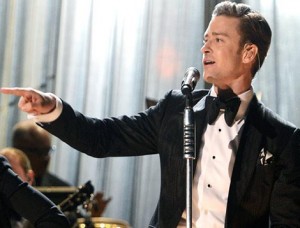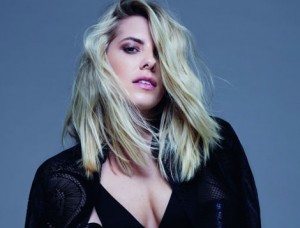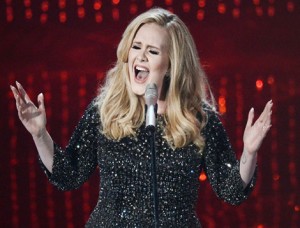Director Gary Ross Talks The Hunger Games
Unless you’ve been living underneath a rock, you’ll know that today is the day director Gary Ross‘ The Hunger Games opens.
Based on Suzanne Collins novel and produced by Nina Jacobson, the film stars Jennifer Lawrence, Josh Hutcherson, Liam Hemsworth, Lenny Kravitz, Elizabeth Banks, Woody Harrelson, Donald Sutherland, Wes Bentley , Alexander Ludwig, Isabelle Fuhrman and Amandla Stenberg.
 Do you have a favorite movie, actor and director?
Do you have a favorite movie, actor and director?
Gary Ross: God, a favorite? No. I have some favorites. I love Chaplin; I mean I really love Chaplin. I just think there’s a grace and an elegance that’s almost never been matched. Obviously I love The Godfather movies, I think they’re phenomenal. I love A Bicycle Thief. I love almost all of Stanley Kubrick, there’s almost no Stanley Kubrick I don’t love. I love Lolita, I love Dr. Strangelove. I love A Clockwork Orange, obviously. I even like a lot of Barry Lyndon(laughs). And early stuff, like The Killing and Paths of Glory.
You shot this movie with a lot of close-ups. You chose an aesthetic and went with it. What was the motivation for that aesthetic and did you sort of tell the studio, ‘I’m planning on shooting it this way?’ or were they surprised?
Ross: Well it’s also very handheld. There’s also a lot of vérité in it; that was really intentional. I’m trying to capture what was visceral in the books, which is your first-person present tense narrative, and that’s gonna require a certain amount of subjectivity. In order to be in Katniss’ point of view and in her shoes—what being in a character’s point of view is, is restricting the information that the audience has to what that character has, and not being writer omniscient. I’m not cutting from place-to-place, I’m moving in this serpentine, destabilized path as Katniss wanders through this world. That’s not only true in the shooting style, it’s also true in the editing style. My editors are Stephen Mirrione who cut Babel and Biutiful and Juliette Welfling who cut The Diving Bell and the Butterfly and all the Jacques Audiard films, The Beat That My Heart Skipped and A Prophet and stuff like that. This was a very conscious decision to create a very subjective style because the books are so subjective, they’re first-person and they’re urgent and you see the world as she sees the world, so that was the reason for it.
 As far as the studio’s concerned, I made a little short film with some references in the beginning when I got the gig, and I was very clear what I was gonna do. Part of it was to get the job, but the other thing was if I was gonna get the job, I wanted them to know what this movie was going to be. I wasn’t going to make a slick, glossy over-produced piece of entertainment because then I would be doing what the Capitol did. Then I’m actually putting on the Hunger Games and not making a movie of the Hunger Games. Especially with this premise, it had to feel very, very real and it had to feel urgent, so it was a true use of the word vérité, it had to feel true.
As far as the studio’s concerned, I made a little short film with some references in the beginning when I got the gig, and I was very clear what I was gonna do. Part of it was to get the job, but the other thing was if I was gonna get the job, I wanted them to know what this movie was going to be. I wasn’t going to make a slick, glossy over-produced piece of entertainment because then I would be doing what the Capitol did. Then I’m actually putting on the Hunger Games and not making a movie of the Hunger Games. Especially with this premise, it had to feel very, very real and it had to feel urgent, so it was a true use of the word vérité, it had to feel true.
Even before the first movie has been released, there has already been a huge buzz about the next one – have you signed on officially for the next film?
Ross: I am attached to the next film and I’m intending to do it, I haven’t had a chance to think about it yet. So many people ask me adaptation questions or ‘Who’s gonna play so-and-so?’ I literally finished this movie Tuesday at midnight, I finished color timing, and then I went into the junket a day later, so it’s not like I’ve had a chance to think about Catching Fire but yeah it’s my intention to do the next one. They’ve asked me to do so.
I know you’re not thinking about the next one yet, but do you envision the next one being similar?
Ross: I think that there may be some aesthetic departures from what I did here, but I don’t wanna talk about them yet not because I’m being evasive, but just because they’re so half-baked I wouldn’t be doing myself justice in the process if I talked about them prematurely, but I think there may be some differences, yeah.
I definitely wanna ask you about deleted scenes, did you lose a lot of stuff?
Ross: No, there weren’t many scenes that I shot that were cut. There were some things from the book that I wanted to put in that I couldn’t, like the Avox subplot, where they came from, things like that. There weren’t many scenes [that I cut], there were a few scenes, but I don’t kind of believe in the whole ‘Director’s Cut’ thing, because this is the director’s cut, the thing I’m doing. There isn’t another version of the movie that I would’ve done, this is my version of the movie that I really intended to do. I think there’ll be a lot of cool supplemental materials on the DVD, but I don’t think I’ll be putting in other scenes that got dropped.
 A lot of directors I speak with talk about one sequence they thought was going to be really hard and then they got it done super quick, and then the sequence they figure is gonna be super easy and they work on it in the editing room for nine months? Did you experience any of that?
A lot of directors I speak with talk about one sequence they thought was going to be really hard and then they got it done super quick, and then the sequence they figure is gonna be super easy and they work on it in the editing room for nine months? Did you experience any of that?
Ross: Totally. Some things that I thought were going to be really, really difficult I had prepped so much for that they fell in so nicely, like the Tracker Jacker sequence or even The Reaping. They’re so unimaginably difficult with the number of axes you’re shooting and what the storytelling is, like The Reaping is eight pages and you need to cover it so specifically. The Tracker Jacker scene is basically vertically configured over 80 feet in a tree and we’re really in the trees and Jen’s really climbing the tree with harnesses on, and the crew’s hanging out of trees and scaffolding and stuff like that, so they were very, very daunting in the run-up to them, in the prep, but they actually fell in very easy—and the fire sequence—‘cause we were ready for them.
Other stuff, it’s always like a three-page dialogue scene where you just kind of get in there, and I don’t remember anything in particular, but none of this was actually that hard. We were so prepped, it wasn’t like I ever got in the weeds and felt buried on any particular day. Any director, if you really ask them, will tell you that the toughest thing to do is like a dinner table or a dialogue scene because you need to keep that electricity maintained throughout the course of the film. But to be actually honest with you, this thing was a blast to shoot and it wasn’t bad. It was very difficult physically, but I felt pretty clear. I mean I had a great time doing it, I really did. I didn’t ever feel in the weeds, and I have felt in the weeds before, and I didn’t on this one.
Interview by
Steve ‘Frosty’ Weintraub

